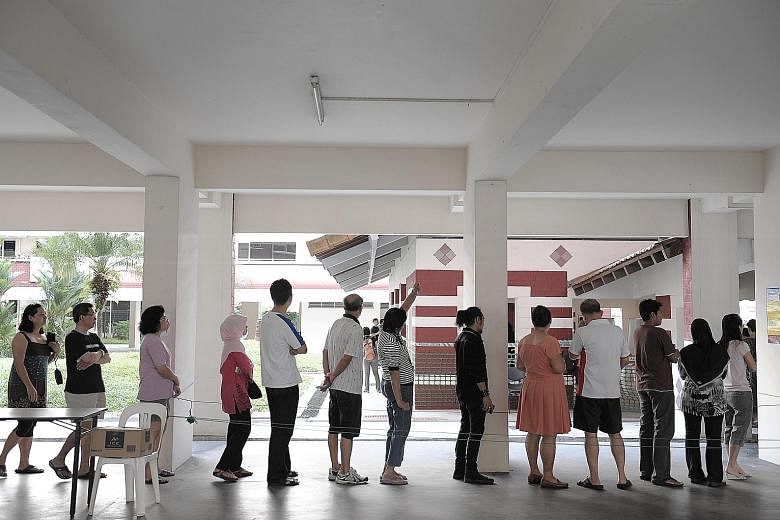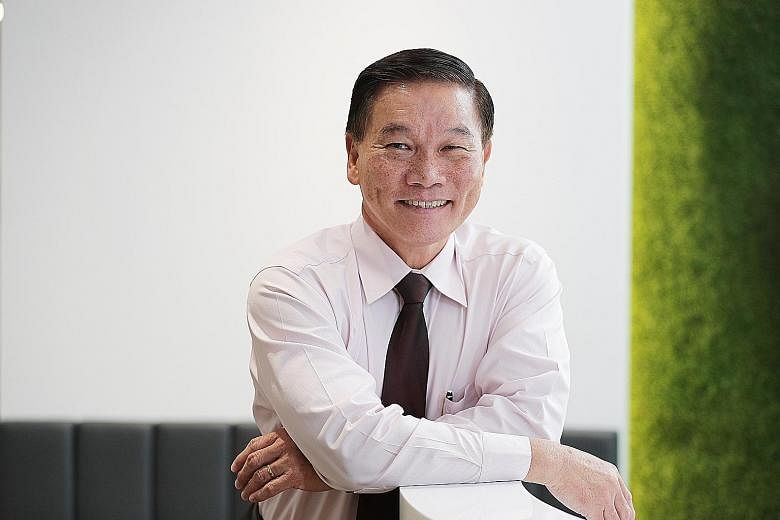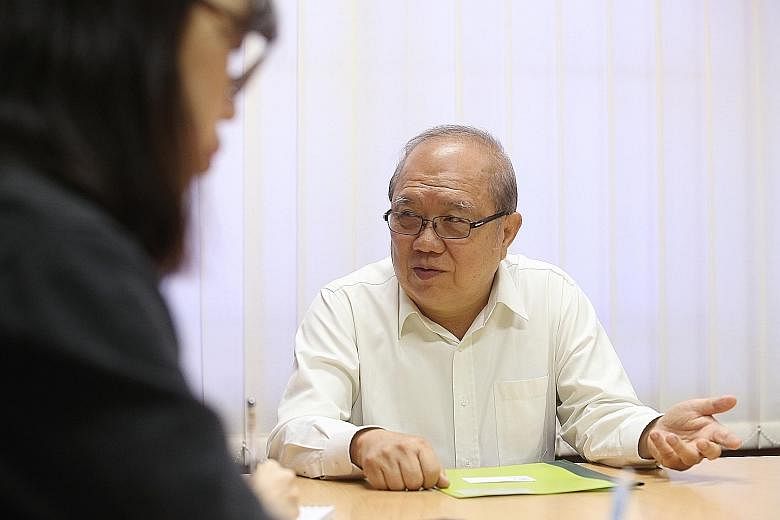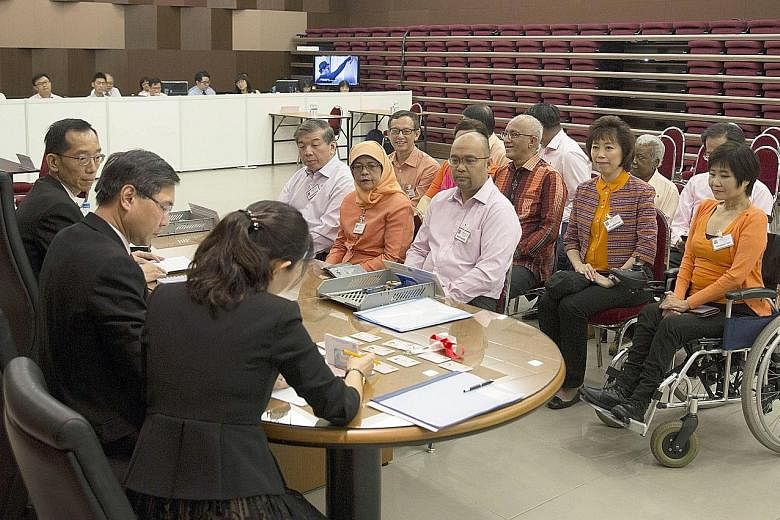When votes were being counted at the 1997 General Election, officials found something extra in a ballot box - a pad of unused ballot papers.
"The opposition said: 'What are you trying to do?'" recalled Mr Tan Boon Huat, 66, who was Returning Officer for that election and oversaw the conduct of the election.
"But, it was accounted for... (the ballot papers) were empty, and it was because of the carelessness of the person who left it (and) sealed the box... I knew for sure that it was a human error, not a deliberate attempt at any voting fraud."
Reflecting on what caused the incident, he added: "I think it was a lack of training."
As the Elections Department (ELD) celebrates its 70th anniversary this year, Mr Tan and former Returning Officer Yam Ah Mee, 60, former ELD head Lee Seng Lup, 68, and current ELD head Koh Siong Ling, 53, spoke to The Straits Times and Lianhe Zaobao about changes to the way the ELD conducts polls. They answered questions on the ELD, including whether it should report to the prime minister.
Steps were taken to ensure better training after the incident of the unused ballots. Before, training was done on a just-in-time basis, after the Writ of Elec tion was issued.
"The election staff got very quick, intensive, one or two briefings... We had all kinds of problems," said Mr Tan. For example, team members did not know one another well.
Today, training is stepped up two to three years before the next election is due, said Mr Tan.
Another improvement: While election officials used to be sent to polling stations near their homes, this changed after 2001, said Mr Lee, who headed the ELD from 2002 to last year. Senior officials are now grouped according to ministry. This improves coordination.
The running of elections is not free from controversy. In 2001, a Workers' Party (WP) team contesting Aljunied GRC was disqualified for failing to write down which constituency they were standing in.
"Why be so particular about the nitty-gritty?" WP chief Low Thia Khiang said at the time, noting that when the WP had technical problems in 1997, it was allowed to stand.
Some errors may be "non-fatal", such as minor misspellings of candidates' names, said Mr Tan, the Returning Officer from 1996 to 2010. But the 2001 case was a "fatal error".
"Our job is not to disqualify people but, in this case, unfortunately, they disqualified themselves," he said.
Papers must be filled in without blanks, witnessed by a Commissioner for Oaths. Otherwise, it must be filled in again, with a new commissioner stamp, he said. After 2001, the ELD stationed commissioners at all nomination centres.
Once an election ends, planning for the next one begins.
This involves analysing each constituency's demographics to help the ELD decide on resources - such as wheelchairs - that each polling station may need, said Mr Yam.
When the Electoral Boundaries Review Committee is convened months before a general election, the ELD, which supports the committee, does the committee's legwork, Mr Lee said. The ELD head is also a member of the committee.
The ELD prepares data for the committee, including the growth of the electorate and the movement of voters. Considerations in redrawing boundaries include population shifts - guided by terms of reference set out by the prime minister.
Yet, the disappearance of some high-profile constituencies - but not others - has led to questions about how decisions are made.
For example, one ward - Potong Pasir - remained intact despite its electorate size falling below the minimum in both 2001 and 2006.
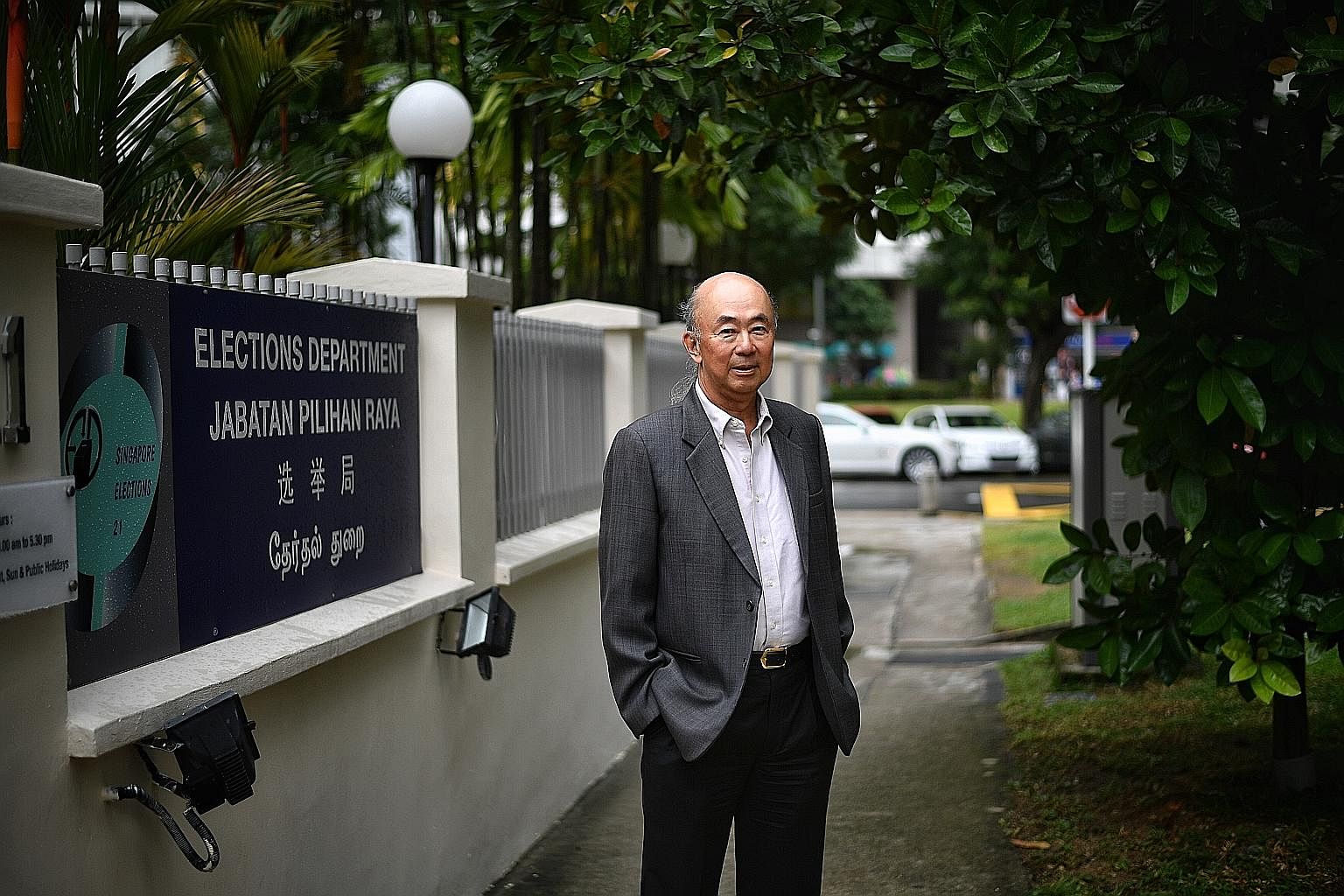
When asked, Mr Lee said a factor is "not to disturb the voters too much", and only when necessary. He declined to disclose more.
"Whatever you do... cynics will cast doubt," he added.
Asked if having the ELD report to Parliament or an independent commission would reinforce its neutrality - a call some have made - Mr Lee said: "What's most important is, you must have the trust of the people."
"You must be seen as impartial," he said, adding that trust also boils down to the civil service's integrity.
Being under the Prime Minister's Office gives the ELD "clout" to get support from other ministries, he added, noting: "We can mobilise resources of the public service to help run elections."
Mr Yam added that decisions by civil servants have to be justified, and can be challenged in court if anyone thinks they are unfair.
Looking ahead, Mr Tan believes that the ELD can engage the public more on social media to "demystify" elections, and dispel misconceptions about the system.
Mr Koh added: "One challenge we face is demographics. On one hand, we have a very young and demanding electorate... If you are used to being able to do many things on mobile devices, how can our services be on your level? On the other hand, we have an ageing population... something we have already started but will continue to look at, is providing barrier-free access (to polling stations)."
